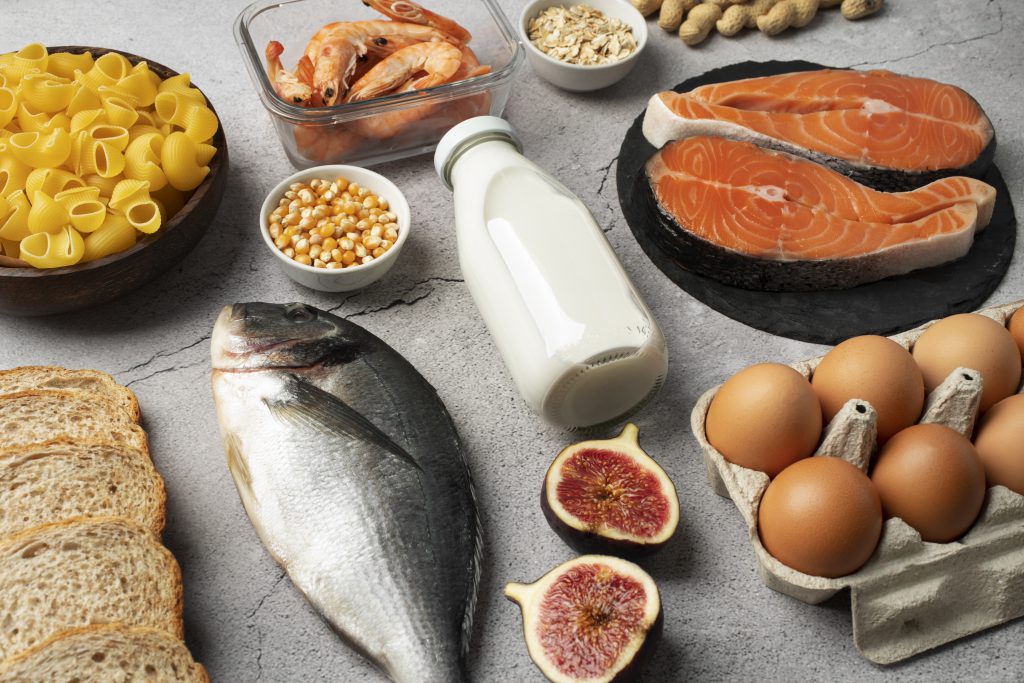Many people encounter significant challenges when it comes to weight loss. It may seem like they are heading in the right direction, but the results they achieve are often less than satisfactory. In the following article, Fit4ever will highlight common mistakes that people tend to make during the weight loss journey.

1. Focus only on weight
Weight should only be considered as a measure of mass. Various factors influence a person’s weight, including the amount of food consumed daily. Additionally, in women, hormonal fluctuations can affect water retention in the body, leading to changes in measurements.
Even though the number on the scale may remain the same or decrease slightly after a period of exercise, you may still notice that your everyday clothing becomes looser, especially around the waist area. This is evidence that the amount of fat in the body has decreased, making way for muscle development. The best advice is to measure your waist circumference and take monthly photos to track the fat loss process, even when the weight remains unchanged.
2. Eating too many or too few calories
One of the most crucial factors in weight loss is burning more calories than you consume. For many years, it was believed that reducing 3,500 calories per week would result in a loss of 0.45kg of fat. However, recent research suggests that calorie reduction varies depending on individual factors.
We often tend to inaccurately estimate the calorie content of a meal. Foods like fish and nuts can be healthy but can also provide too many calories in one meal. Calculating the right calorie intake is essential. On the other hand, consuming too few calories can lead to muscle wasting and slow down the metabolism.
3. Not exercising or exercising too much
During the process of weight loss, a person will lose both a certain amount of fat and muscle. Not exercising while restricting calories will lead to more muscle loss and a reduced metabolism. On the other hand, regular exercise brings many benefits, including minimizing muscle loss and promoting the fat loss and metabolism.

However, overtraining can have negative long-term effects on health and lead to increased stress. Additionally, excessive exercise can negatively impact the endocrine hormones that regulate various bodily functions. Moderation in exercise is key to maintaining an optimal metabolic rate during the weight loss process.
4. Using weight loss-friendly foods
Processed ‘Weight Loss’ products may have adverse effects. Most of these products contain chemical additives aimed at enhancing flavor. The Centers for Disease Control and Prevention (CDC) in the United States states that a balanced diet provides much more nutrition than using dietary supplements. Therefore, instead of consuming weight loss support products, it’s better to incorporate various fresh foods and fruits into your diet. Frozen and canned vegetables and fruits are also good options because their nutritional content is equivalent to fresh produce.
5. Not eating enough protein
Another important factor in the weight loss process is getting enough protein. Research has shown that protein can aid in weight loss in several ways, such as: Reducing appetite; Increasing feelings of fullness; Maintaining or increasing metabolic rate; Preserving muscle mass during weight loss.

Research also suggests that a higher protein diet can help control appetite and improve overall appearance. To facilitate the weight loss process, make sure that each meal contains protein-rich foods. Protein-rich foods are not limited to just meat or dairy. Nuts and legumes are also excellent and budget-friendly options.
6. Not eating enough fiber
Not consuming enough fiber can affect the weight loss process specifically and physical health in general. Research shows that all fiber-rich foods can promote the weight loss process while interacting with gut bacteria, creating hormones that induce a feeling of fullness. Additionally, fiber contributes to reducing the risk of chronic diseases and improving digestion.
7. Setting unrealistic goals
We often set weight loss goals or other objectives to motivate ourselves. However, setting unrealistic expectations can have counterproductive effects. Research shows that unrealistic goals can lead to dissatisfaction with what has been achieved, causing feelings of discouragement and loss of motivation. Therefore, it’s important to set practical goals, such as reducing 5% or 10% of body weight at a rate of 0.5 – 1kg per week. This approach can enhance the likelihood of achieving your goals and help your body lose weight effectively and healthily.

At Fit4ever, no matter which class you sign up for, you’ll always have a dedicated trainer by your side. They not only guide you through proper and precise workouts but also provide advice on the most suitable dietary plan to support your weight gain gym exercises for men, ensuring effectiveness.
Through this article, Fit4ever hopes to provide you with useful information to help you establish a proper and supportive nutritional regimen to maximize the effectiveness of your weight gain gym workouts. For a more scientific and well-structured workout plan, you can come to Fit4ever and register for our weight gain and muscle building package. For more detailed information, please contact our hotline at 0766888989 or send us a direct message here for specific guidance.







